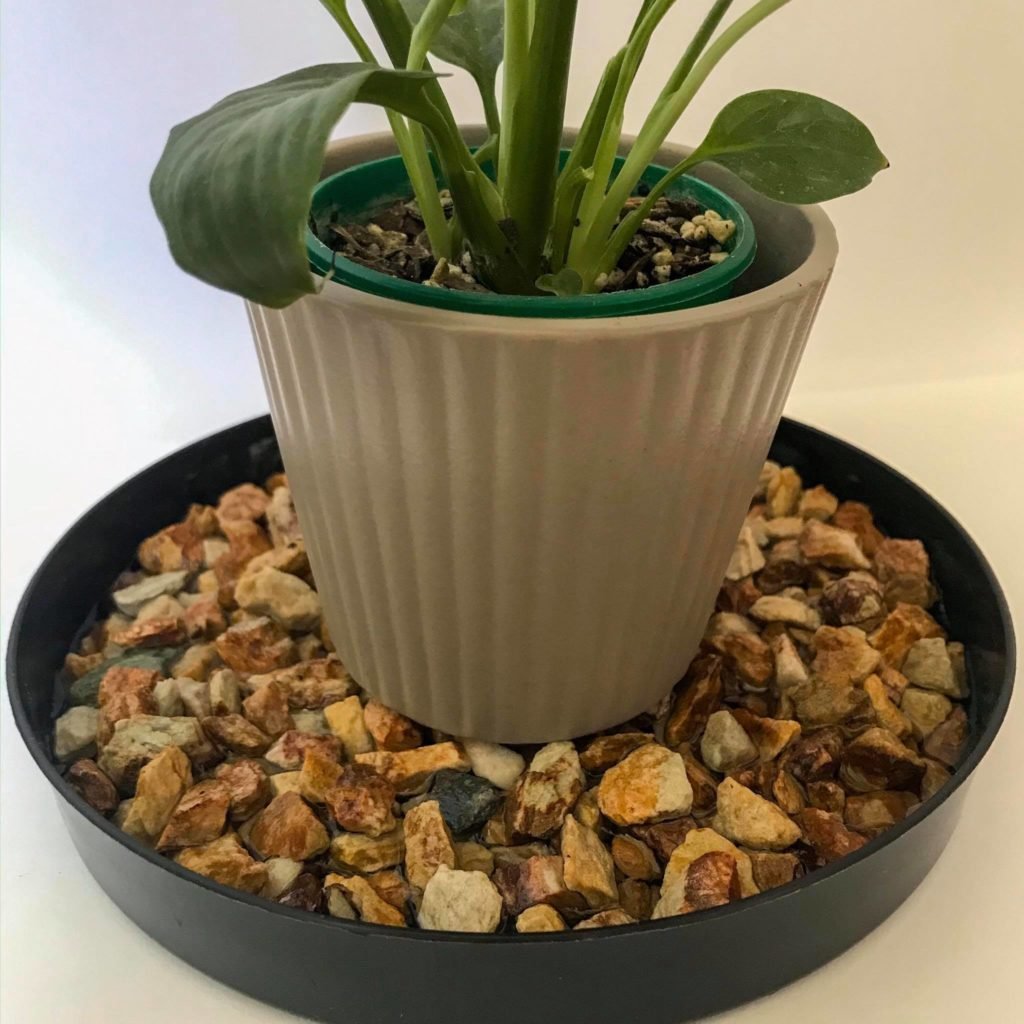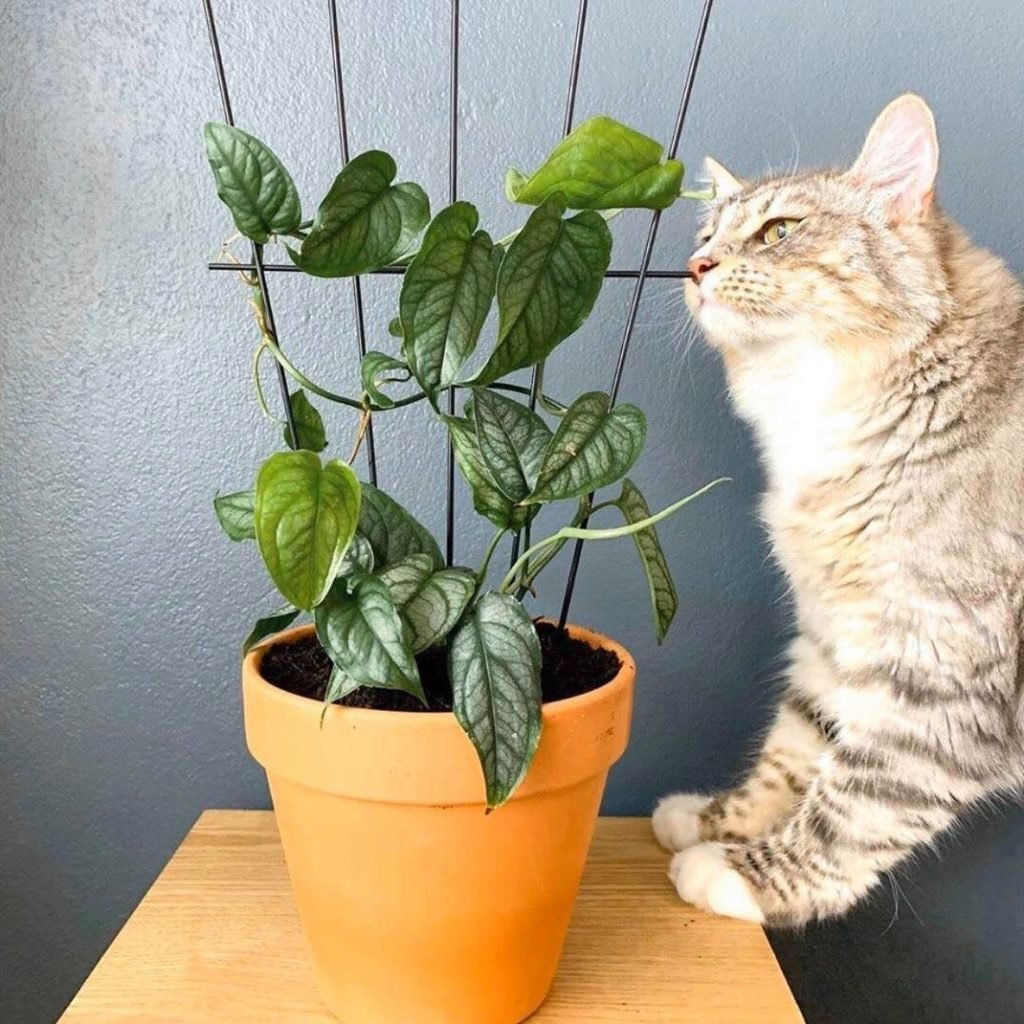When it comes to keeping indoor plants, not only do you need to think about their soil, water and light needs, you also need to think about their nutrient needs. When you fertilise indoor plants, it gives them the essential nutrients they need for promoting and maintaining new and healthy growth. Not only do you need to consider what fertilising method you will use, you need to be cautious that you don’t over-fertilise your houseplants.

Why do Indoor Plants Need Fertiliser?
Indoor plants need fertiliser to get the essential nutrients they need for healthy growth. As our houseplants grow, they extract the nutrients they need from the soil. Unlike plants that live outside and have continuous access to nutrients everyday, houseplants rely on us to provide them with the essential nutrients they require for optimal growth. Applying fertilisers regularly will replenish the soil and ensure that your indoor plants continue have the essential nutrients they need to grow and maintain healthy growth.
What is the Best Fertiliser for Indoor Plants
For most indoor plants, a balanced all purpose fertiliser is the best. Fertilisers for indoor plants contain a variety of micro and macro nutrients as well as essential minerals Nitrogen, Phosphorous and Potassium (N-P-K). Choosing a fertiliser depends on the type of plants you’re growing. Nitrogen helps to increase the leaf size and produce an overall healthy, larger plant. Phosphorous helps with flowering and fruiting while Potassium helps with overall vitality.
For information on how to fertilise indoor plants click here.
Types of Fertiliser for Indoor Plants
When it comes to providing nutrients for your indoor plants, there are a few options to choose from. The two different types of fertiliser categories to choose from are synthetic and organic. Synthetic fertilisers are used to quickly supply nutrients and don’t improve the soil longterm. Organic fertilisers are naturally produced and added to the soil to create a longer lasting supply of nutrients while also improving soil structure, aeration and water retention.
Synthetic Fertilisers
Synthetic fertilisers are inorganic compounds that are “man made”. They are typically derived from chemicals such as ammonium phosphate, potassium sulfate, ammonium nitrate and superphosphate. Unlike organic fertilisers, synthetic fertilisers don’t do anything to improve the soil longterm. These type of fertilisers are generally used to give your plants a quick boost because they are absorbed more quickly than organic fertilisers.
Liquid Fertiliser
Most liquid fertilisers will need to be diluted with water and applied by a watering can. They can be delivered to the plants through their foliage or soil and roots. Liquid fertilisers are designed to give the plant the nutrients they need quickly.
Slow Release Fertiliser
Slow release fertilisers are pellets that are coated with a plastic resin or sulfur based polymers that breakdown when they come in contact with water, sunlight and heat. This type of fertiliser can last for up to 6 months from one application. Slow release fertilisers are designed to slowly release a steady amount of nutrients into the soil over a period of time. This means it also helps to eliminate the risk of fertiliser burn.
Granular Fertiliser
Granular fertilisers are dry pellets of pure fertiliser that you mix into the soil. When you water your plant, the pellets release all the nutrients at once, making it hard to control how much fertiliser your plants get. This type of fertiliser is more popularly used in outdoor gardens. Although it is cheaper, it’s best to not use on your indoor plants.
Fertiliser Spikes
Fertiliser spikes contain fertiliser inside them and when spiked into the soil, they release nutrients. They are designed to slowly release fertiliser to the plants roots when it needs them. Fertiliser spikes can last for a few months and also help eliminate the risk of over-fertilising your plants.
Organic Fertilisers
Organic fertilisers are naturally produced by or from animals or plants. These types of fertilisers are great to add to potting mixes as they have a long lasting supply of nutrients, improve soil structure and increase water retention. Organic fertilisers are also typically pretty safe to use for houseplants and minimise the risk of over-fertilising.
Compost
Compost can include a mixture of ingredients that is used as a fertiliser and to improve soil structure. It commonly contains recycled organic materials and decomposed plant and food waste. Compost is rich in nutrients and beneficial organisms. Using compost in your houseplant soil can help improve soil health, retain water and promotes healthy growth.
Worm Castings
Worm Castings (also known as vermicast) is an organic fertiliser that is produced from earthworms and their waste. This fertiliser helps retain water, improve aeration and allows plants to absorb and hold onto nutrients that would otherwise drain away with water. Worm castings contain microorganisms and trace minerals which plants thrive on.
Leaf Mould
Leaf mould is a type of compost that is produced by decomposing shrub and tree leaves. It’s low in nutrients and doesn’t provide a lot of fertility when on its own. Leaf mould is used as a natural soil conditioner which helps improve soil structure, retains water and provides habitat for micro and macro organisms in the soil.
Fish Emulsion
Fish emulsion is an organic fertiliser that is made from fish remains. The only downfall to this type of fertiliser is that it smells bad. Fish emulsion contains all the essential nutrients and trace elements that help improve soil microbes and encourage plants to become healthier, stronger and more vibrant.
Manure
Manure is an organic fertiliser that is made from animal faeces. Composted manure is a nutrient rich fertiliser that can be mixed into houseplant soil. It is good for retaining water and nutrients, soil structure and aeration.
Blood Meal
Blood meal is dried animal blood that typically comes from cattle or hogs. It is high in nitrogen and helps grow and produce a healthy, larger plant. You should be careful to closely follow the instructions as adding too much nitrogen to your plants can possibly burn and/or kill them.
Bone Meal
Bone meal is made up of animal bones that have been ground into a fine powder or granules. It’s high in phosphorous which is essential for root growth. Bone meal is a natural slow release fertiliser that increases soil microbes and improves root growth.
Alfalfa Meal
Alfalfa meal is a natural fertiliser that is made from fermented alfalfa seeds and plants. It’s rich in micronutrients and trace minerals which plants thrive on. Alfalfa meal contains triacontanol which helps to retain water, promote healthy roots, retain nutrients and improve aeration in the soil.
There are many other organic fertilisers you can use to add fertility to your soil that have similar benefits as the ones listed above. Some of the other organic fertilisers are rock phosphate, wood ash, cottonseed mean, soybean meal, feather meal and crab meal.


